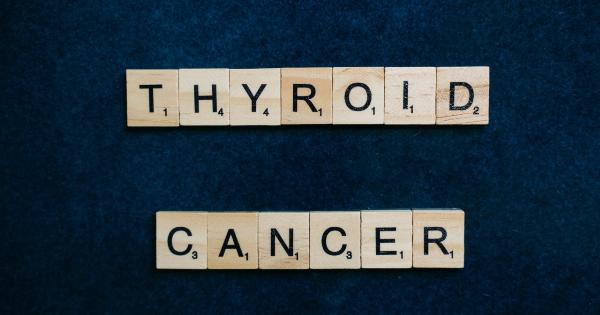Our thyroid gland is a butterfly-shaped gland located in the neck, responsible for regulating the body’s metabolic rate and producing hormones that have an impact on almost all of the body’s functions.
However, sometimes the thyroid gland can become overactive or even develop cancer, leading to a condition where the thyroid needs to be removed. Here are some of the situations when it might be time to consider removal of your thyroid gland.
What is Thyroidectomy?
Thyroidectomy is a surgical procedure in which part or all of the thyroid gland is removed. A thyroidectomy may be performed for several reasons, including the presence of thyroid cancer, a non-cancerous growth on the thyroid gland, or hyperthyroidism.
Depending on the reason for the surgery, there are several different types of thyroidectomy that may be performed.
Types of Thyroidectomy
There are three main types of thyroidectomy:.
Partial Thyroidectomy
In some cases, only part of the thyroid gland needs to be removed, and this is called a partial thyroidectomy. This procedure is typically done to remove a nodule or a lobe that’s too large or is suspicious of cancer.
Total Thyroidectomy
A total thyroidectomy is a procedure in which the entire thyroid gland is removed. This procedure is typically done to treat thyroid cancer or hyperthyroidism.
Subtotal Thyroidectomy
A subtotal thyroidectomy is a procedure in which most of the thyroid gland is removed, but a small portion is left. This may be done in cases where the thyroid is overactive, and it has become enlarged due to overproduction of hormones.
Removing a portion of the gland can help treat hyperthyroidism, but it also preserves enough thyroid gland function to avoid developing hypothyroidism.
Symptoms of Thyroid Problems
The symptoms of thyroid problems are different for each individual, and the severity of these symptoms varies from person to person. Here are some of the common symptoms of an overactive or underactive thyroid gland:.
Hypothyroidism
- Fatigue
- Weight gain
- Cold intolerance
- Muscle weakness
- Depression
- Constipation
- Dry skin
Hyperthyroidism
- Weight loss
- Tremors
- Rapid heartbeat or palpitations
- Increased sweating
- Anxiety or nervousness
- Bulging eyes
- Heat intolerance
Thyroid Cancer
Thyroid cancer is the most common cancer of the endocrine system, which includes the thyroid, parathyroid, and adrenal glands. Fortunately, thyroid cancer is often treatable when detected early.
If thyroid cancer is detected, a thyroidectomy may be necessary to remove the cancerous cells and prevent the spread of cancer elsewhere.
When is Thyroidectomy Required?
A thyroidectomy may be required in the following situations:.
- Thyroid Cancer: If cancer is detected on the thyroid gland, a thyroidectomy may be needed to remove all or part of the thyroid gland.
- Hyperthyroidism: In some cases, hyperthyroidism, a condition in which the thyroid gland produces too much thyroid hormone, can be treated with medications. However, if the medications are ineffective, a thyroidectomy may be necessary to remove part or all of the thyroid gland.
- Enlarged Thyroid: Sometimes the thyroid gland can become enlarged, causing a swelling in the neck. The swelling may also press on other organs and cause difficulty in breathing or swallowing, in these cases thyroidectomy may be the preferred treatment option.
- Thyroid Nodules: Thyroid nodules are usually non-cancerous lumps that develop on the thyroid gland. However, sometimes these nodules can grow too large or cause other problems, in which case a thyroidectomy may be recommended.
Risks and Complications of Thyroidectomy
Like any surgical procedure, thyroidectomy is associated with certain risks and complications. Some potential risks and complications of a thyroidectomy include:.
- Bleeding
- Infection
- Nerve damage
- Voice changes or hoarseness
- Hypothyroidism
Conclusion
Thyroidectomy is a surgical procedure that might be required in several situations, including thyroid cancer, hyperthyroidism, enlarged thyroid gland, and thyroid nodules.
A thyroidectomy may involve either a partial, total, or subtotal removal of the thyroid gland. Although thyroidectomy is generally considered safe, it does carry some risks, including nerve damage, hypothyroidism, and bleeding.
Your doctor can provide you with more information regarding the risks and benefits of the thyroidectomy procedure and decide whether this surgery is appropriate for your condition.



























